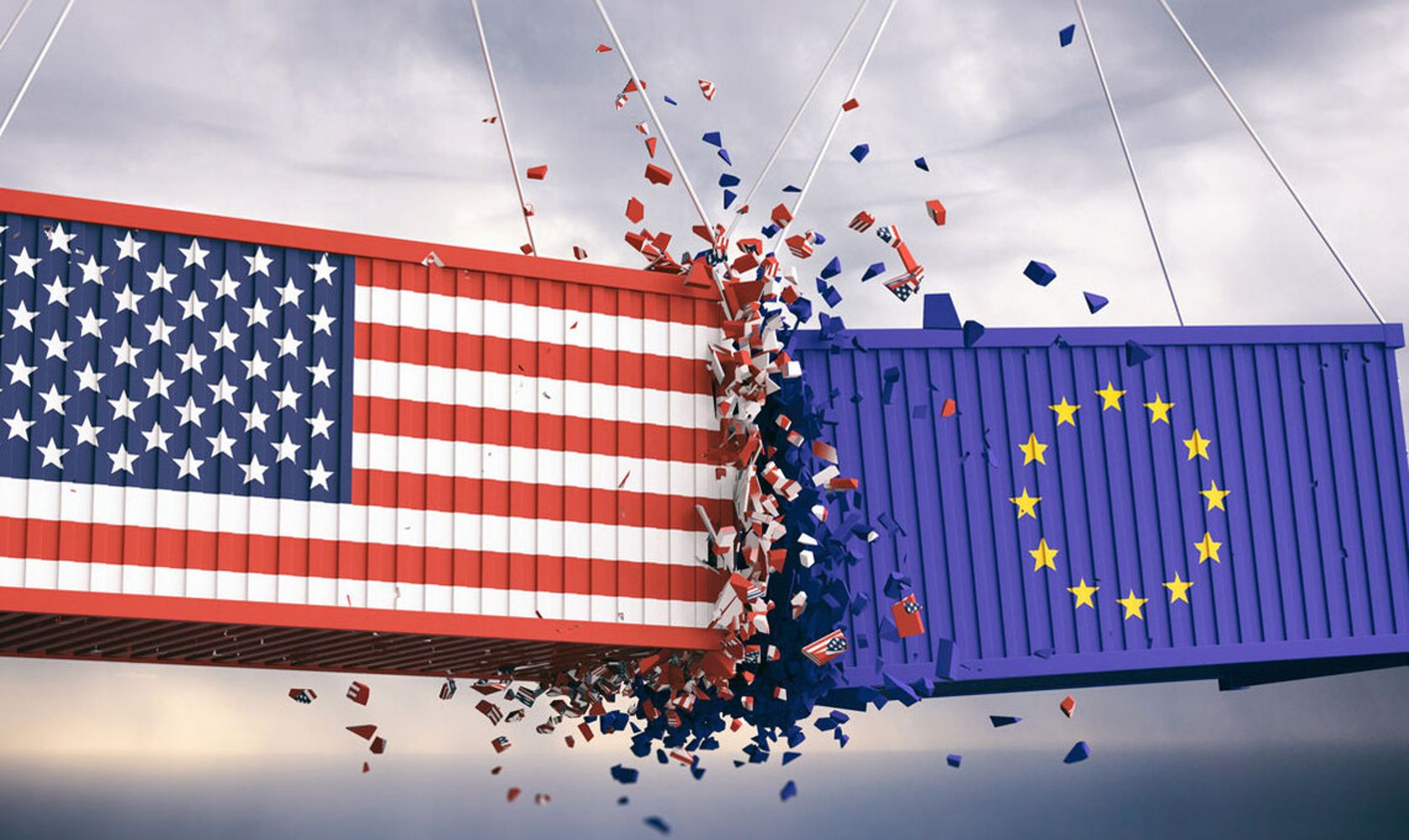
Tariffs America- Europe
Giovanni De Sio Cesari

|
Tariffs seem to be the topic of the day, a subject brought to the forefront so dramatically by Trump. It's a topic the average person can’t make sense of, which would be normal enough, but even economists seem unable to get their bearings. We don't claim to bring clarity here; we just want to frame the issue. The first aspect to consider is the balance of payments. It’s intuitively obvious that a country’s balance of payments from foreign trade can’t be in deficit forever. No nation—just like no individual, no matter how rich—can afford to spend more than it earns for too long. The balance of payments must eventually return to equilibrium. The American balance of payments is currently in deficit, so the need to bring it back to balance is completely understandable. In the past, during the Cold War, the fundamental need was to "contain communism," as stated by the Truman Doctrine. The U.S. was therefore willing to economically support Europe so it wouldn't fall prey to communism (through the Marshall Plan and similar efforts). This was a defensive investment, we could say, and more effective than weapons. But this need no longer exists, and Europe is now economically prosperous. So, there is no obvious reason why the U.S. should continue to support it financially. There is, however, another problem, which is more complex and more important. Certainly, as economists say, globalization boosts the GDP of everyone—both exporters and importers. Exporters receive funds to prosper, as seen in China's phenomenal growth, which is largely due to exports to the West. On the other hand, importers clearly benefit from paying less for goods than they would if those goods were produced domestically. Consider, for example, many sectors of Italian fashion that simply invent designs and apply their brand name to goods that are actually produced at very, very competitive prices in poor countries. Thus, economists are right to say that globalization, the absence of commercial barriers between states, increases everyone's GDP. However, GDP per capita is just an average. As the saying goes: if I eat two chickens and you eat none, according to GDP we each ate one chicken, but that's not true. What happens is that the simplest, most manual production jobs are done in poorer countries, while the more complex jobs are done in richer countries, as in the fashion example. This leads to what is called an industrial wasteland. This means that the poorer part of the nation loses jobs and becomes impoverished, while the higher-earning part sees its income rise. This is what is known as income polarization, with a consequent weakening of the middle class and an increase in absolute and relative poverty, as shown by almost all statistical surveys in the West. It is therefore necessary to bring production back to more advanced countries (reindustrialization) to restore jobs and combat poverty. This is what Trump promised his voters: to bring factories back to America and promote investment (MAGA: Make America Great Again). The means to achieve this goal appear to be tariffs. By making imported products more expensive, they are meant to restore competitiveness to domestic products. Trump also claims that the revenue from these tariffs can restore the American national budget, which is in significant difficulty, at the expense of other countries, without having to levy new taxes on Americans. However, it’s important to remember that if tariffs are effective, they increase the cost of imported products. Ultimately, the tariffs wouldn't be paid by foreign exporters but by American consumers, making them a hidden tax on Americans. For example, if a German car costs 10% more in the U.S. due to tariffs, it means the American who buys it is secretly paying a 10% higher tax. The issue of tariffs is very complex because the effect is neither automatic nor immediate. If our Parmesan cheese costs more in the U.S., that doesn't mean it can be produced in the U.S., and even if it could, it would take a long time for that to happen. The problem gets even more complicated because everything seems uncertain and confusing. As everyone knows, Trump constantly says one thing and then contradicts himself. Some believe this is an effective commercial tactic, while others see it as a sign of character uncertainty—he changes his mind at any given moment—or perhaps a bit of both. The result, however, is that uncertainty spreads everywhere. Since economic actors need certainty to plan their actions, everything seems to be heading into a crisis. Agreements are starting to take shape, though; recently, there seems to be a deal with Europe on a 15% tariff. However, trade agreements are highly complex, requiring an extremely detailed definition of infinite specifics and clarifications. Instead, it seems these agreements remain vague, just principles whose implementation is uncertain and open to endless interpretations. For example, you hear people say that the U.S.-EU agreements aren't binding. But then what are they for? In fact, no one can predict what effects the imposition of tariffs will have on the American and European economies. We should also remember that, promoted by Trump, they have overshadowed a problem that seems more important to us: should we Europeans also impose tariffs on China and other poor nations? In reality, Trump's motivations also apply to us Italians and Europeans; in fact, they seem more urgent and serious to us. But no one seems to be talking about it anymore.
|